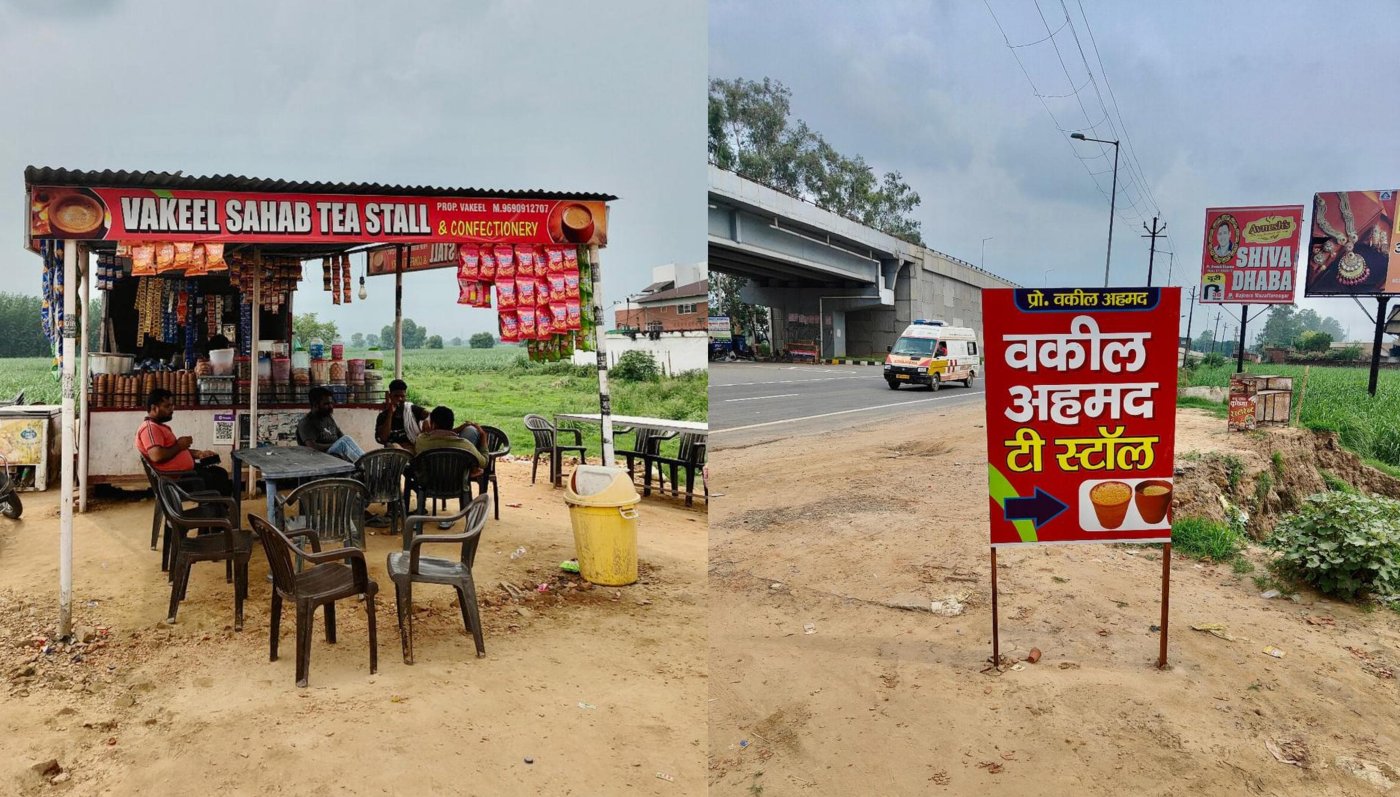
By Kaushik Raj & Alishan Jafri
Muzaffarnagar, Uttar Pradesh: For over two decades, 42-year-old Mohammad Azeem peacefully ran his small streetside paan and cigarette shop at the Vehelna Chowk in Muzaffarnagar, a communally sensitive district in the sugarcane belt of western Uttar Pradesh (UP).
Azeem said this changed on 9 July 2024 when the UP police came to his shop and told him to display his name during the Kanwar yatra, a pilgrimage in which millions of young Hindu men walk hundreds of kilometres from different parts of north India to the holy city of Haridwar in Uttarakhand during the monsoon season.
An estimated 25 million Hindu pilgrims pass through UP, India’s most populous state, governed since 2017 by the Bharatiya Janata Party (BJP), which has encouraged and facilitated louder, brasher and more jingoistic celebrations of Hindu festivals.
The day after the police visited him, Azeem paid Rs 1,200 for a new banner with his name.
In years past, Azeem said that his shop was filled with Hindu pilgrims buying tobacco and eating paan (nuts and natural sweeteners in a betel leaf.)
With his Muslim name displayed on his shop, Azeem was afraid that Hindu pilgrims might think twice about stopping and he would lose money during the yatra from 22 July 2024 to 6 August 2024.
“People might see my name and stop buying from my shop,” said Azeem. “I also fear that if any riots or communal conflict occur, it will be easy to target Muslim shops.”
This story was originally published in article-14.com. Read the full story here.

